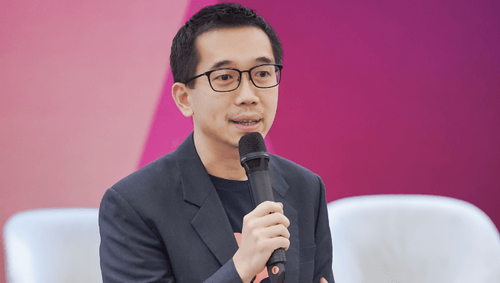
One doctor for every family: Good Doctor wants to make healthcare accessible for all Indonesians
Good Doctor allows customers to consult doctors online, buy medicines from Health Mall, and book offline doctor appointments at hospital partners
Danu Wicaksana has long believed that the healthcare sector in Indonesia, with a huge population and insufficient infrastructure and professionals, would benefit tremendously by embracing digital technology. Fortunately, the sector has experienced significant growth in recent years, driven by increasing smartphone penetration, rising awareness, and a growing middle class.
Wicaksana’s telehealth firm, Good Doctor, is on a mission to be part of this growth story.
Founded in 2018, Good Doctor allows customers to consult doctors online, buy medicines from Health Mall, and book offline doctor appointments at hospital partners.
Making healthcare affordable to all Indonesians “As a local Indonesian who grew up in the country myself with all the healthcare service challenges, I always see Good Doctor not only as a company that wants to do well but also to do good for the nation. We always emphasise innovation, collaboration, and a relentless focus on customer satisfaction,” he tells e27.
“Our vision, ‘one doctor for every family in Indonesia’, is rooted in providing accessible and affordable healthcare solutions for all Indonesians, and this vision continues to guide our strategic decisions, product development, and market expansion efforts,” he adds.
Good Doctor, serving over 15 million users, has partnered with more than 2,500 corporates in Indonesia. Its services include 24×7 on-demand teleconsultation with general practitioners and specialists across 26 departments, e-prescription services, and swift drug delivery within one hour in over 120 cities through its network of more than 3,500 pharmacy outlets.
The company also offers various consumer healthcare services, such as vaccination, medical check-ups, and preventive health management for corporate partners.
Good Doctor primarily operates in the B2B2C sector, partnering with insurance companies and corporate clients. Its revenue model includes pay-per-use (PPU) and subscription approaches. Under PPU, clients pay based on actual usage, while subscription clients pay upfront for a set period.
The company also serves B2C customers through on-demand teleconsultation, e-prescription, and healthcare products under the PPU model.
Building a sustainability business The telehealth firm is now on a mission to achieve sustainability.
“There are several factors that we need to address to achieve financial sustainability, e.g., solid unit economics for every product, scalability of our services and efficiency of our cost to serve our clients. With a huge total addressable market in Indonesia and beyond in Southeast Asia, we are optimistic that we will achieve financial sustainability in the foreseeable future,” notes Wicaksana.
According to him, scaling operations in the healthcare sector presents various challenges, including regulatory hurdles and market adoption. However, he acknowledges that market adoption has accelerated significantly in recent years, particularly during the COVID-19 pandemic, as many individuals were compelled to embrace teleconsultation and telemedicine as new norms.
“Until today, we have seen that that shift has turned into a more permanent habit. Even better, not only do the end users feel the benefit and adopt it as a habit, but the corporate and insurance companies also feel that telehealth is an essential part of their offering to their customers. These factors have been driving demand for us in Good Doctor, and we believe that this trend is going to continue at a faster rate moving forward,” remarks Wicaksana.
Also Read: From chatbots to therapists: How AI breaks ground in bridging the mental health care divide
Despite the bottlenecks, Good Doctor has emerged as a leading B2B2C telehealth provider in Indonesia, boasting partnerships with over 65 insurers, 2,500 corporate partners, and six major third-party administrators (TPAs). It also signed a memorandum of understanding (MOU) with BPJS, Indonesia’s universal healthcare provider, to spearhead digitalisation efforts for BPJS services.
Developing AI-driven tools The startup is developing AI-driven tools to assist its doctors in enhancing productivity and diagnostic accuracy.
Additionally, there is a notable demand from insurance and corporate partners for preventive health programmes, prompting the company to explore technological advancements necessary for effective delivery.
For instance, algorithms are being developed to enable personalized health plans for individual users based on real-time health data obtained from their wearables.
Investing in innovation In October 2023, Good Doctor secured US$10 million in a Series A funding round led by MDI Ventures, with participation from its existing investor, Grab. Softbank Vision Fund is also an investor.
Good Doctor is currently in the process of raising fresh funding.
“We plan to utilise those funds to further enhance our technology platform, introduce new products and services, and enhance the overall user experience,” said Wicaksana.
Looking ahead, Good Doctor plans to expand its services, with further details to be announced in the coming months, as well as to target new customer segments.